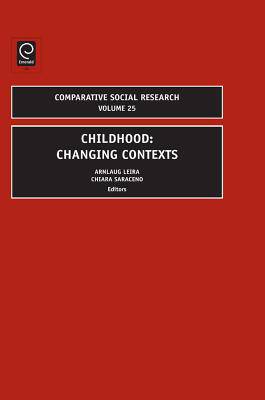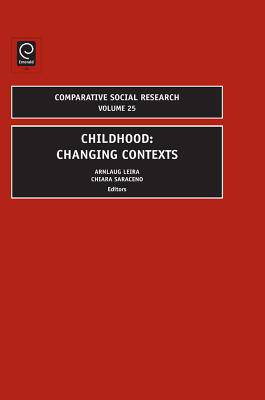
Bedankt voor het vertrouwen het afgelopen jaar! Om jou te bedanken bieden we GRATIS verzending (in België) aan op alles gedurende de hele maand januari.
- Afhalen na 1 uur in een winkel met voorraad
- In januari gratis thuislevering in België
- Ruim aanbod met 7 miljoen producten
Bedankt voor het vertrouwen het afgelopen jaar! Om jou te bedanken bieden we GRATIS verzending (in België) aan op alles gedurende de hele maand januari.
- Afhalen na 1 uur in een winkel met voorraad
- In januari gratis thuislevering in België
- Ruim aanbod met 7 miljoen producten
Zoeken
€ 86,45
+ 172 punten
Omschrijving
Demographic and societal changes are strongly affecting the contexts of childhood and the experience of being children. At the same time, across social groups and across societies, diversities and inequalities in childhood are taking new forms. In the developed world, in particular, children their number, their welfare, their education, the division of power and responsibilities over them among the different social actors have entered the public agenda, at the national and supranational level. Public concern over issues such as fertility rates, mothers working, early childhood education and care as well as solemn international declarations of children's rights are examples of the ongoing politicization of childhood. Drawing both on micro and macro, national and comparative studies, this volume of "Comparative Social Research" traces some of the trends and analyzes in comparative perspective how they affect images and practices of childhood and transforms responsibilities for children. The volume's focus is mainly on children in the developed countries, but attention is also paid to transnational diversities and to the impact of globalisation through the experiences of migrant children and of children living through the processes of modernization in the developing world.
Specificaties
Betrokkenen
- Uitgeverij:
Inhoud
- Aantal bladzijden:
- 424
- Taal:
- Engels
- Reeks:
- Reeksnummer:
- nr. 25
Eigenschappen
- Productcode (EAN):
- 9781781901564
- Verschijningsdatum:
- 1/08/2012
- Uitvoering:
- Paperback
- Formaat:
- Trade paperback (VS)
- Afmetingen:
- 150 mm x 226 mm
- Gewicht:
- 657 g

Alleen bij Standaard Boekhandel
+ 172 punten op je klantenkaart van Standaard Boekhandel
Beoordelingen
We publiceren alleen reviews die voldoen aan de voorwaarden voor reviews. Bekijk onze voorwaarden voor reviews.








